Impact Report 2022
Safeguarding the Network of Networks
As people around the world face issues like racial or social disparities, war, natural disasters, or financial inequality, we see the increasing need for social connection, reliable information, and opportunities for self-determination.
The Internet, in part, makes this possible.
That’s why, with our members and partners, we work to grow and protect this vital resource. We address important issues related to connecting underserved populations, safety and security, and fragmentation.
We do this so people don’t lose out on life-changing and lifesaving resources. So they can tend to their families and their communities—and participate fully in the pursuits that bring them meaning.
People are resilient. Our efforts help ensure the Internet is, too.
Securing the Internet
The Internet is based on trust. No matter who or where you are, connecting to the Internet should be a consistent experience. It’s what enabled the Internet to flourish, and how it became such an important resource.
Keeping Information Confidential on the Internet Fosters Trust
Encryption saves livelihoods—and lives.
To participate in the world with confidence, we have to know our digital information is safe and secure. This is especially vital to vulnerable groups like children and LGBTQ+ communities, and those in professions who require confidentiality, like journalists and human rights defenders.
These moves to erode encryption and create backdoors in places like the EU and U.S.—they spread. They spread, and similar regressive policies will be applied and copied even, including in the Middle East and North Africa region. So it’s fundamental we protect the right to encryption when it comes to marginalized communities who are overpoliced and surveilled. When those most impacted are kept safe and secure, everyone broadly is kept safe and secure.”
Global Encryption Day
Global Encryption Day rallies our fellow Global Encryption Coalition (GEC) members and partners to protect end-to-end encryption and encourage its use in products.
Many Internet Society chapters held their own Global Encryption Day events to promote the use of encrypted apps and services in their communities as well as urging their local governments to refrain from passing policies that harm strong encryption.
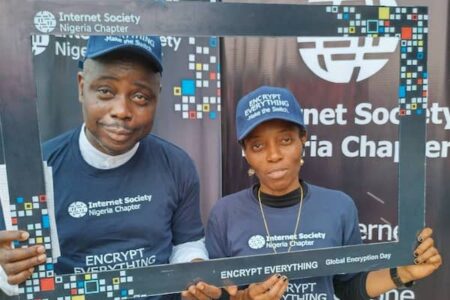
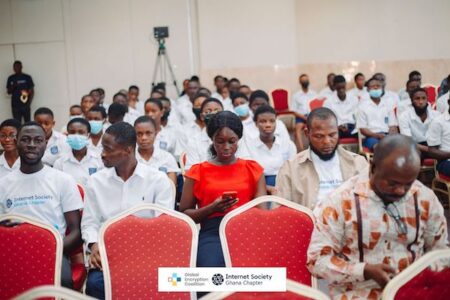
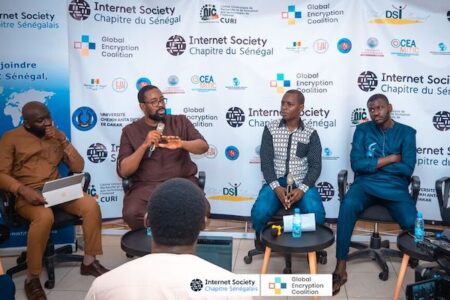
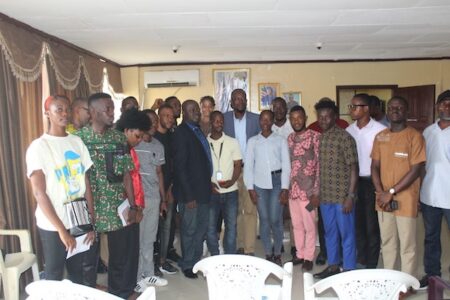
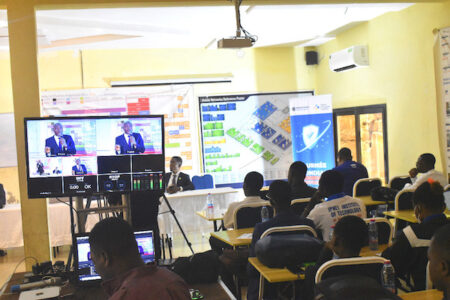
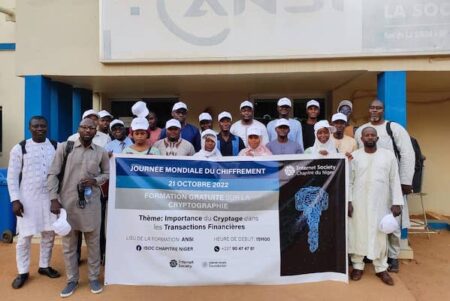
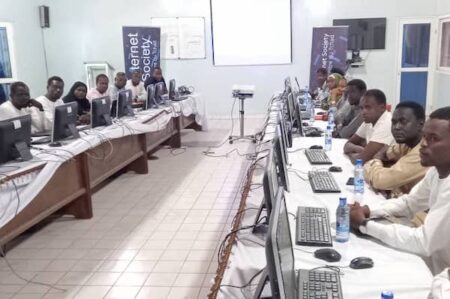
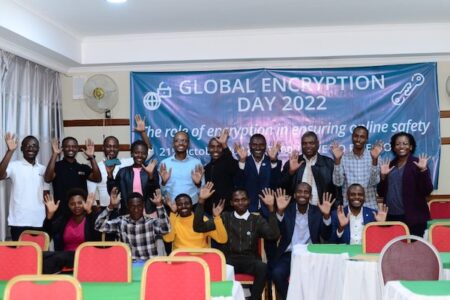
Keeping the Internet Working Means Protecting It from Harmful Policy
In 2022, several legislative threats to encryption failed to pass. These included the misleadingly named Kids Online Safety Act (USA) and EARN IT Act (USA). If they did pass, they would have a devastating impact to our online security threatening to fracture the Internet itself. While these bills didn’t pass in 2022, they’re being re-introduced in 2023 with the same threats to encryption. We are actively following updates and advocating against encryption-breaking content.
The fact is several policies and proposals jeopardizing our private and secure communications sprout up each year. But through partnerships—like group advocacy with the GEC—and across multiple channels (e.g., Global Encryption Day, direct government relations, workshops, and Internet Impact Briefs), we challenge these before they can take root.
Protecting the Internet from Harmful Policy Is Never “One and Done”
Policies that are bad for the Internet are proposed all the time, and they often inspire more bad policies across the world.
Bills like the EU CSA Legislation (EU), Draft Indian Telecommunication Bill (IN), and UK Online Safety Bill (UK) persist into 2023, and we expect to see more on the horizon in 2024.

Shradha Pandey
Alum and Board Member, Youth Standing Group
With her extraordinary energy and relentless focus on meaningful youth engagement, Shradha Pandey is nothing short of inspiring. Among her many accomplishments, Shradha was named an Internet Society Internet Governance Forum (IGF) Youth Ambassador in 2020, was selected as one of 12 individuals for the Kofi Annan Changemakers program in 2022, and currently serves as a board member of our Youth Standing Group (SG).
Shradha loves helping other young people become Internet champions.
She collaborated with the International Telecommunications Union on the Generation Connect Global Youth Summit held in Kigali, Rwanda, where she presented a Masterclass called “In the Shoes of a Digital Policymaker,” and both organized and participated in the Youth Dialogue on Internet Governance (DIG), followed by EuroDIG and other national, subregional, and regional IGF initiatives.
Start with one step at a time, always remember your opinions matter, and know the youth community is always ready to help you along as you start your journey and to empower you to become a great leader to protect and defend the Internet.”
Protecting the Internet and Everyone Who Uses It with Routing Security
Increased online activity means increased potential for cyberattacks and vulnerabilities to the Internet. But Mutually Agreed Norms for Routing Security (MANRS) solves this challenge.
More network operators, Internet exchange points (IXPs), and content delivery network and cloud providers implementing MANRS will result in fewer routing incidents.
These secure pathways make sure data goes where it’s supposed to and helps keep the Internet secure.
MANRS continues to grow, now with more than 1,000 participants and 20 partners. And MANRS participants are more conformant, implementing routing security best practices to protect the Internet.
In 2022, the Federal Communications Commission issued a Notice of Inquiry on the matter of “Secure Internet Routing.” MANRS was mentioned 40 times throughout the document, cementing its reputation as the industry standard for routing security in the U.S.
Helping Courts Understand How Their Legal Decisions Impact the Internet and People
In 2022, we filed our first amicus curiae brief in a case brought to the 9th Circuit Court of Appeals in the United States. The outcome of the case could have had a profound impact on how we use the Internet. In Hunley v. Instagram, photographers sued Instagram, claiming that Instagram was guilty of copyright infringement by allowing users to embed photographers’ work on other websites.
In our brief, we challenged the potential for sweeping copyright liability laws across the Internet. These kinds of laws could make content-hosting providers reluctant to permit embedding altogether, compel creators to buy additional servers to host their content or stop creating content altogether, or force dramatic changes to the Internet way of networking—the building blocks that make the Internet work.
In February 2023, the court ruled as we had hoped, in favor of Instagram. As courts become the new battleground over our online future, our Amicus Program will continue to give the Internet, and the people who rely on it, a voice.

Lily Edinam Botsyoe
Alum and Member, Internet Society Ghana Chapter
Visionary, innovative Internet champions like Lily Edinam Botsyoe are rallying to safeguard the Internet.
During her role as the Ghana Chapter’s Chair of the Women and Youth Committee, Lily played a pivotal role in encouraging and advocating for women’s participation in various Internet activities. She says she loves working with other young people for their ideas and what she calls “out-of-the-roof energy!”
Lily also served as the youth representative on the Ghana Internet Governance Forum (IGF) steering committee. On the global stage, Lily was selected to represent youth at the IGF Expert Group Meeting in New York and represented youth voices at the opening ceremony of the annual IGF in Addis Ababa, Ethiopia. She was also an ardent contributor to the processes that led to the creation of the Youth Summit at the 2022 IGF.
No contribution is little in this space. It starts little but has ripple effects. You can create change from where you are, [then] seize the opportunity of the Internet Society community to extend your work to many other people.”
Protecting the Internet from Fragmentation
Politicizing decisions about the Internet isn’t new. The term “splinternet” gained mainstream attention in 2022, an indication of its growing impact.
The Internet was built to be borderless. Artificially carving it up (or fragmenting it) along geographical, political, commercial, or technological boundaries will undermine the very trust and way of networking that has enabled it to thrive.
To help protect against fragmentation, we launched an advocacy campaign and issued a call to action to chapters, partners, organizations, and individual members.
By writing letters to lawmakers and raising awareness with #ProtectTheInternet and #StoptheSplinternet, Internet Society members and partners shared this important message:
The Internet is a neutral resource for everyone. It works because it’s a network of networks.
It’s not a geopolitical battleground.

Esther Mwema
Alum and Member, Internet Society Zambia Chapter

Uffa Modey
Alum and Member, Internet Society Nigeria Chapter and Youth Standing Group
Esther Mwema and Uffa Modey began their Internet governance journey as Internet Society’s 2017 Youth@IGF fellows to attend the Internet Governance Forum (IGF) in Geneva. During the IGF, they collaborated with other Internet Society youth fellows—all under the age of 25—to start Digital Grassroots (DIGRA), a youth and female-led nonprofit that engages youth in Internet governance and addresses the digital needs of underserved communities.
All these years later, DIGRA continues its mission to engage youth on important Internet topics. In 2022, Esther and Uffa hosted two cohorts of a six-week Digital Rights Learning Exchange. The online program brought together 40 human rights defenders, lawyers, journalists, researchers, Internet governance activists, and others from 14 countries, all of whom are now equipped with critical knowledge on the topics of Internet access and affordability, freedom of expression, Internet shutdowns, and digital privacy and surveillance.
And DIGRA’s ongoing Digital Grassroots Ambassadors online program has also proven to be a powerful tool, having trained a total of more than 170 ambassadors in over 30 countries who are today engaging in digital activism that brings its impact across dozens of communities.
Russia: How Global Events Are Interconnected with the Internet
Following Russia’s invasion of Ukraine, many governments called for Russia to be disconnected from the Internet, part of broader economic sanctions.
If successful, these sanctions would have relegated Russian citizens solely to RuNet, Russia’s domestic online network. This path would harm individual citizens more than state actors. It would isolate people from the rest of the world at a time when they need information the most.
Using our Internet Impact Assessment Toolkit, we analyzed the risks of splitting off Russia from the on true global Internet.
Mobilizing our chapters and organization members with an advocacy strategy, we called on countries to exclude Internet access from sanctions and refrain from politicizing the Internet.
The U.S., EU, and G7 committed to exempt telecommunications that support Internet access and the flow of information from their sanctions against Russia.

The End of the Internet as We Know It
Internet Society organization member Surfshark hosted a podcast featuring Internet Society staff: Natalie Campbell, Senior Director, North American Government and Regulatory Affairs, and Neeti Biyani, Senior Advisor, Policy, and Advocacy. The episode, titled “The End of the Internet as We Know It,” and the companion explainer video amplified our message against fragmentation and reached more 61,000 people.
Bridging the Digital Divide
At least 2.7 billion people still lack Internet access.
This digital divide is multifaceted: it’s not just in availability, but also affordability, gender and racial inequality, and digital literacy among other issues.
We work tirelessly with our members, chapters, and partners to bring affordable, sustainable, and secure Internet access to the people who need it most, in some of the hardest places to reach, to make connections that last.
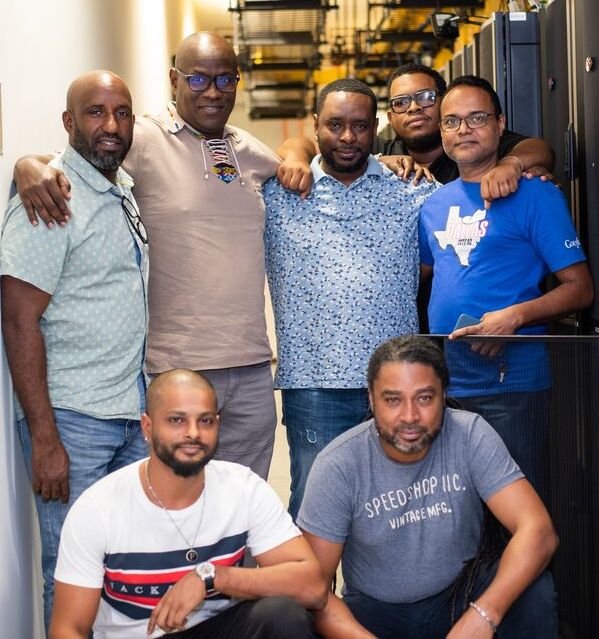
Cape Verde, the Maldives, and Suriname
Small Island Developing States are a distinct group of developing countries that are often challenged by their remote geography and frequent natural disasters.
Combining small populations, low economies of scale, and the high cost of crossing open seas results in higher Internet connectivity costs, which means most residents lack access. Those who do find connections often find access to be slow, expensive, and unreliable.
We supported three new Internet exchange points (IXPs) in these locations, resulting in less expensive, faster, and more resilient Internet connections. This also reduced the need for international bandwidth and fostered the development and hosting of local content.

Spotlight on Maldives Internet Exchange (MVIX)
A group of network operators in the Maldives came together to form MVIX, the Maldives’ first IXP. We joined APNIC, APNIC Foundation, and APIX in supporting MVIX on their mission to reduce costs and improve the Internet user experience in the area.
It was a challenge to provide each island with good Internet connectivity. [There was] limited bandwidth.”
Fellow supporter Mohamed Anas, a System Administrator for Medianet, agreed. “Our biggest challenge? How we carry Internet services to our customers through multiple Internet Service Providers. By joining MVIX we will be able to reduce operational costs.”
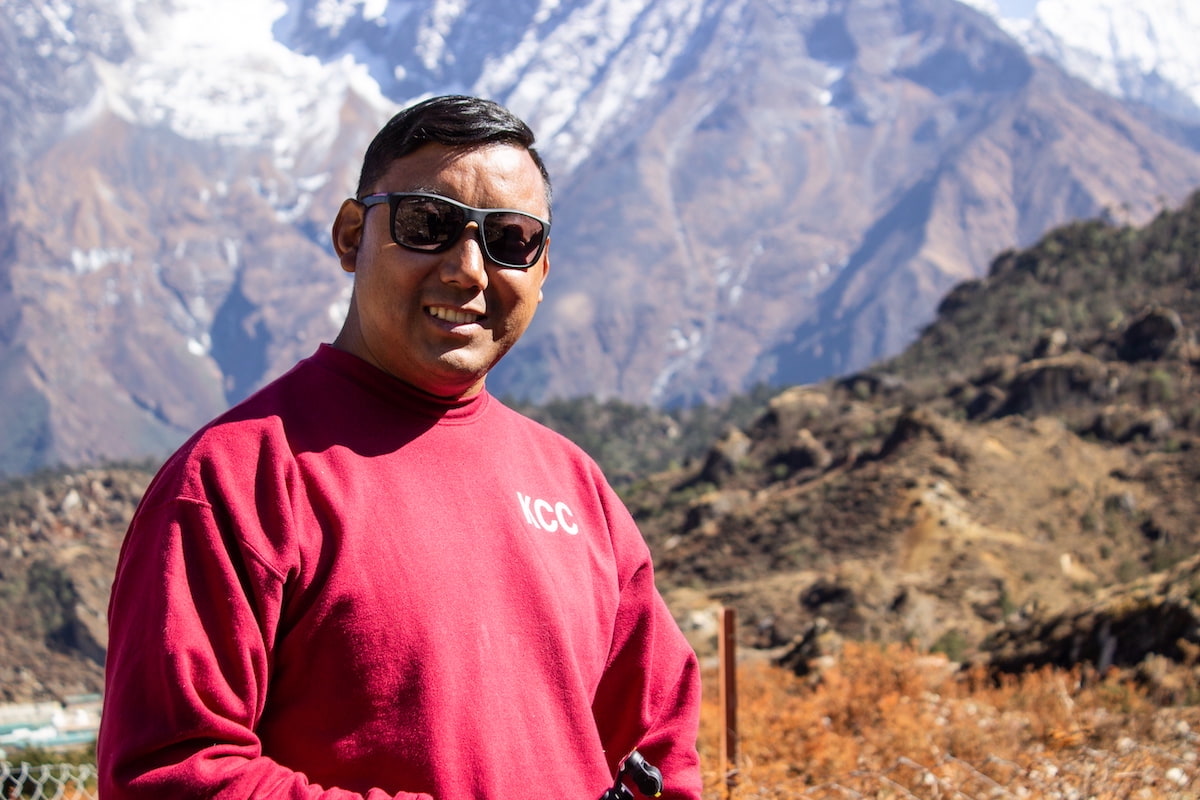
Nepal: Scaling Up Internet Access near Mount Everest
The journey to Internet access for the residents of Nepal villages of Khunde and Khumjung, near Mount Everest, began in part with the actions of one person: Chhepal. Chhepal, a Sherpa entrepreneur and local resident, gathered the community together to build the Internet connection themselves. They began with a wireless network, and the Internet Society covered technological support and infrastructure costs.
This initial connectivity makes it possible for people in these communities to access educational resources and economic opportunities. A new Wi-Fi hotspot at the local school means the children of Khunde, Khumjung, and several other nearby villages have access to improved education. Chhepal can reach more potential visitors with his Sherpa homestay business and drive local tourism. And others in Chhepal’s community can explore alternative, safer ways to earn income thanks to Internet access.
And while this progress has already made such a positive difference for people living in these communities, work continues so that soon every home in Khunde and Khumjung will have access to the Internet.

Osei Manu Kagya
Alumni and Member, Internet Society Ghana Chapter
The Internet can only benefit our society when it reflects the people who live in it. Osei Manu Kagya, a member of the Institute of ICT Professionals Ghana communications team, calls his background “a fine blend of technical and civil society advocacy.” He was appointed in 2022 as a representative for the Internet Society Ghana Chapter and joined the Steering Committee of the Youth and Women Committee. He separately joined a leading business and financial newspaper to write articles and opinion pieces about Internet-related issues.
United States: Economic Empowerment with the Jesup Cyber Wagon
Having to seek out reliable Internet access has hindered real-time access to health, education, and other human services in Tuskegee, Alabama, U.S.—especially so in low-income Black communities, a reflection of ongoing racial inequalities.
Alabama entrepreneur Boyd Stephens and a team of volunteers built a physical infrastructure and laid fiber to bring broadband access to Tuskegee and the surrounding areas.
Known as the Jesup Cyber Wagon, the community network project was made possible through a partnership of the Tuskegee Housing Authority, an agency that provides affordable housing, along with a grant sponsored by the Internet Society and Truist Financial. Jesup Cyber Wagon was awarded nearly $180,000 USD to make Stephens’ vision a reality.
The name “Jesup Cyber Wagon” is a callback to a mule-drawn “moveable school” that traveled to rural Black farmers in the early 1900s.
Features of the Jesup Cyber Wagon:
- After-school training and tutorial facility
- Technical training facility
- Mentoring program
- Internet education and business skill building for all ages
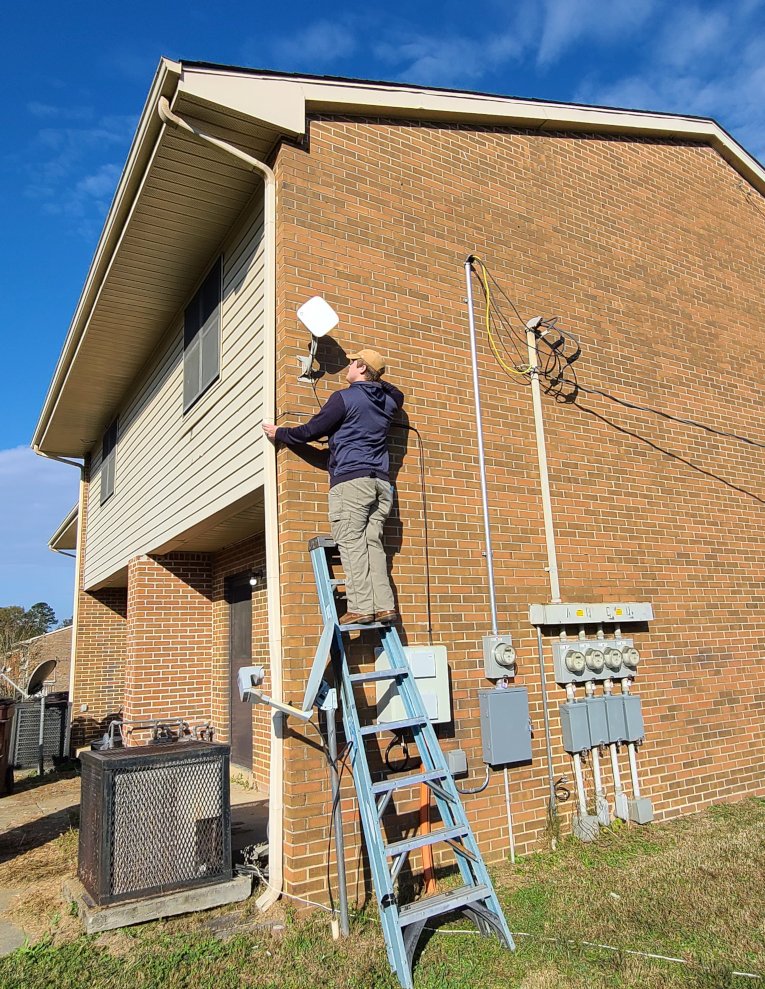
The compelling drive is to empower people, both economically and socially, to give them a voice. Because no one can tell your story the way you can tell your story, and this wonderful network of networks, the Internet, allows you to do a pretty good job of that.”
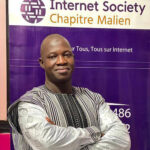
Bakary Kouyate
President, Internet Society Mali Chapter, and Founder, MaliNOG
Bakary started with an idea. He rallied his local technical community to work together to make it a reality.
He saw there was no unified forum in Mali for network operators or service providers to share technical research, Internet development information, or electronic communications data. Under Bakary’s leadership, Mali Chapter members collaborated with Malian technical professionals, including telecoms operators, Internet service providers, governmental ICT agencies, the Regional CISCO academy, the university, and various associations, to create the Mali Network Operators Group (MaliNOG).
It now serves as an open platform for the further development of network engineering and the Internet in Mali, where any member of the Malian Internet community can exchange and share technical information and expertise.
This Network Operators Group gives us the power to train all the actors involved in networking….This was a very good idea. We are not represented enough.”
Keeping the Internet On in Critical Times
When is it a good idea to disconnect a country from the Internet? Never. Yet shutdowns persist.
There are human rights at risk, too. In some countries, Internet shutdowns are used by the government during elections, which keeps citizens from receiving up-to-date, accurate information.
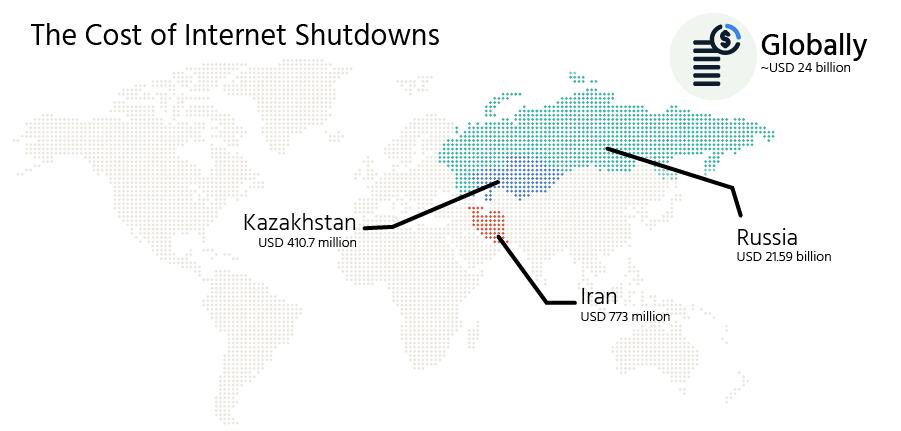
Benin
Following a successful campaign to keep the Internet on during the 2021 election, the Benin Chapter ran another campaign in 2022 to protect against Internet shutdowns ahead of their country’s January 2023 legislative elections.
It’s not just a matter of keeping the Internet on. Strong Internet infrastructure facilitates election transparency.
Kenya
During the 2022 election, Kenya’s electoral commission used the Internet to digitally transmit election results from more than 46,000 polling stations countrywide to central servers in Nairobi, where they could be verified and officially tallied. Media and other stakeholders could conduct independent tallying of the results, increasing the transparency of the election process.
People in Kenya could download the election results as they were transmitted without any interruptions thanks in part to the Kenya Internet Exchange Point (KIXP), which the Internet Society has helped to strengthen for more than 10 years with training, technical, and infrastructure support.
The Internet Is a Force for Good
Let’s keep it that way.
As a seamless, trusted resource, the Internet is vital to humanity. As we face threats and manage crises across the world, we must come together to defend and protect the Internet.
We can’t do it without you. Here’s how you can get involved:
Image credit:
Global Encryption Day: © Internet Society, © Fabrice Sokpor (Senegal Chapter), Suriname: © Randy Berghout, Nepal: © João Aguiar/Internet Society, Jesup Cyber Wagon: © Boyd Stephens